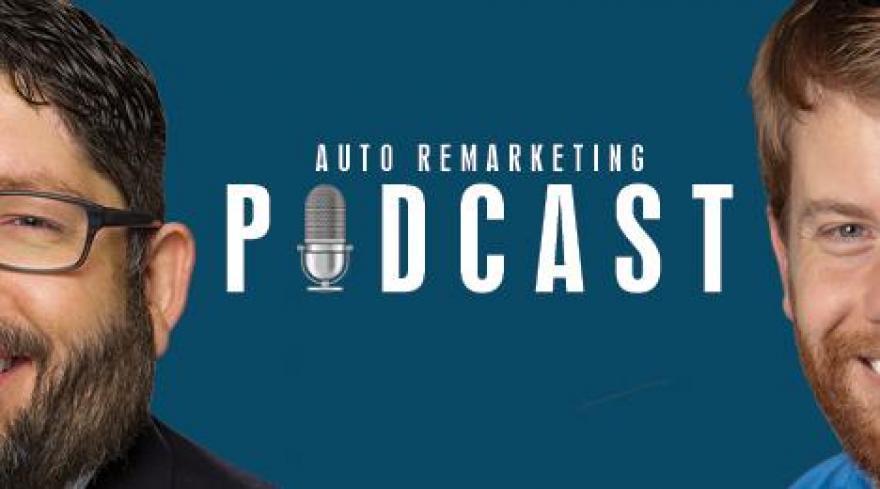For the second time in the past few days, 700Credit finalized another integration; this time with ABCoA so dealerships can answer the question of, “How can we get rid of double-entry and multiple screens when working a deal?”
ABCoA has integrated 700Credit’s credit, compliance and pre-screen platforms into the Deal Pack DMS. The companies explained this development means that full credit reports and prescreen (soft pull) reports can be accessed through one platform in an effort to create a smoother, more efficient workflow.
ABCoA Deal Pack is dealer management software that can help dealerships and finance companies work a deal faster while remaining compliant. Deal Pack can offer sales, leasin and finance as well as service and parts with built-in, real-time accounting, allowing a dealer to manage all facets of their operation in one single software.
The tool can simplify daily tasks and eliminates duplicate data entry.
“The integration between the Deal Pack platform and our credit, prescreen and compliance solutions provide dealers with a seamless workflow as they move through the desking and sales process,” 700Credit managing director Ken Hill said. “ABCoA provides an all-in-one DMS solution for independent, BHPH and LHPH dealers, and we are excited to be a part of their solution.”
ABCoA president Jonathan Hedy added, “700Credit offers a robust credit, compliance, prescreen and consumer pre-qualification solution that adds value for our clients in the subprime industry. Our integration is seamless, and I am excited to offer 700Credit within Deal Pack.”
The relationship with ABCoA comes on the heels of 700Credit finalizing an integration with the AppOne Dealer Portal to help powersports stores.
This week, AUL Corp. launched a new suite of F&I products. President and chief executive officer Jimmy Atkinson described the offering as giving dealers “a one-stop shop for all of their F&I needs.”
AUL’s collection of products now includes:
• GAP coverage
• Theft
• Pre-paid maintenance
• Key/fob replacement with roadside assistance
• Scratch
• Tire and wheel
• Windshield
• Interior and exterior appearance
• Paint-less dent repair
“Some of our largest agents and dealers have been asking us for years to expand our F&I offerings beyond VSCs, but we have always remained true to our long-time commitment of providing the best vehicle service contracts, with the best coverage and the best customer service,” Atkinson said.
“After nearly 30 years of delivering the very best VSC options, this singular focus has served us extremely well,” he continued. “But with our steady growth and a recently launched underwriting system, which allows us to be more nimble and efficient, we are perfectly positioned to bring additional offerings and more profit potential to our customers. The timing is just right.”
With consumers holding onto their cars longer than ever before, now averaging 11 years according to IHS Markit, AUL emphasized that VSCs and ancillary products are becoming increasingly important to deliver peace of mind to vehicle buyers. AUL’s suite of products can give dealers a single source provider that simplifies F&I so the dealer can move the negotiations outside of the finance departments ‘box’ and into the hands of the salesperson — where negotiations are often much less contentious.
One of the more significant offerings of the new suite is the firm’s GAP coverage, which protects vehicle owners whose vehicles have been totaled, but they owe more on their loan than the insurance company pays to replace the vehicle. As its name states, GAP Coverage helps to fill that gap.
Highlights of AUL’s GAP include coverage up to 84 months, coverage up to 150% of the MSRP/NADA value of the vehicle, an online claims portal for quicker claims and service, and it is backed by an A.M. Best A-rated carrier.
For more information, visit www.aulcorp.com.
With U.S. House lawmakers set to conduct a hearing on Wednesday to examine the rising costs and potential discrimination happening in auto financing, the April data shared by Edmunds and Kelley Blue Book showed how much more consumers stretched to make a vehicle purchase — especially for new models.
Edmunds reported rising prices and tightened credit conditions continued to place pressure on the new-vehicle market in April. Analysts projected the average price of a new vehicle was expected to climb to $36,718 in April, the highest level seen so far this year.
Edmunds noted April also marked the fourth straight month of the year that interest rates hovered above 6%. According to Edmunds data, the annual percentage rate (APR) on new financed vehicles is expected to average 6.28% in April compared to 5.58% last year and 4.40% five years ago.
“April sales were a bit dampened by the harsh financing conditions we’ve been seeing in the new car market,” Edmunds executive director of industry analysis Jessica Caldwell said in a news release. “Shoppers are really starting to feel the pinch as prices continue to creep up and interest rates loom at post-recession highs.”
The valuation analysts at Kelley Blue Book today reported the estimated average transaction price for a light vehicle in the United States was $36,843 in April. New-vehicle prices increased $732 (up 2%) from April 2018, while rising $93 (up 0.3%) from last month.
“Transaction prices climbed 2% in April, still largely due to the shifting sales mix toward SUVs and crossovers,” Kelley Blue Book analyst Tim Fleming said. “With slowing retail demand and increased competition, SUV prices were up just 1% for the month. However, the shrinking market share of the more affordable car segments, now close to 30 percent, is driving the industry average upward.”
According to Edmunds data, zero percent finance offers continued to be tough to come by in April, constituting only 3.20% of financed transactions in 2019, compared to 7.64% in 2018 and 7.38% five years ago. But Edmunds experts note that this might change heading into the summer holiday sell-down season.
“Slower April sales didn’t do much to eat into the industry’s mounting inventory levels, so we might start to see manufacturers and dealers begin to loosen the reins on incentives closer to Memorial Day weekend in an attempt to rekindle demand,” Caldwell said.
Meanwhile, the Subcommittee on Oversight and Investigations within the House Financial Services Committee conducted a hearing on Wednesday entitled, “Examining Discrimination in the Automobile Loan and Insurance Industries.” Lawmakers lined up testimony from six individuals from consumer advocate organizations, think tanks and universities to discuss auto financing.
Part of what is concerning to lawmakers is Federal Reserve Bank of New York data that showed the rising amount of auto debt consumers are carrying nowadays, surpassing $1.2 trillion with Texas contract holders having the highest average auto debt at more than $6,500 per capita.
The committee memorandum about Wednesday’s hearing said, “The lack of data collection necessary to fully uncover discriminatory practices in the auto finance space presents a barrier to meaningful progress. While auto lenders have faced liability under (the Equal Credit Opportunity Act), Regulation B prohibits them from asking about or documenting borrowers’ race or ethnicity in any financial transaction other than a mortgage. Consequently, advocates have observed that auto financing lacks the transparency and scrutiny provided to mortgage lending even though it is a more common financial transaction.”
Officials from 700Credit, which provides credit reports, compliance solutions and soft-pull products and services, recently finalized another integration aimed at streamlining delivery to be as fast as the weekend toys that powersports dealers sell.
AppOne integrated 700Credit’s credit and compliance platform within the AppOne Dealer Portal, which can connect dealers and finance companies to automate and accelerate the traditional indirect credit application submission and documentation processes.
AppOne is a web-based platform that connects recreational vehicle, marine, and power sport dealers with financing. AppOne can give dealers the ability to submit credit applications to finance companies and prepare and print finance-company specific document packages, eliminating the task of forms management and greatly reducing the chance of returned contacts and re-contracting.
“The AppOne platform provides the workflow and technology to allow dealers to get deals done more efficiently,” 700Credit managing director Ken Hill said. “The integration between the AppOne platform and our credit and compliance solutions provide dealers with a seamless workflow, providing efficiencies as they move through the lending process.”
AppOne senior sales director Chet Heughan added, “We are excited to offer 700Credit services to the thousands of marine, RV and power sport dealers using the AppOne Dealer Portal.
“The suite of services offered by 700Credit goes far beyond simple access to credit bureaus and adds true value and efficiency to the dealer’s sales and compliance processes,” Heughan went on to say.
First Investors Financial Services (FIFS) is now using a pair of cloud-based loan solutions fueled by defi SOLUTIONS.
Officials highlighted the Houston-based subprime auto finance company went live on the defi loan origination and analytics systems (defi LOS and defi ANALYTICS) in just four months.
“We needed an innovative platform and partner who understood our business and could stand up the system quickly,” FIFS president and chief executive officer Tommy Moore said.
“Throughout every twist and turn of this project, the defi team was professional and timely. They gave us just what we needed: a strong partner and advocate during this critical transformation,” added Moore, who was the 2017 Subprime Auto Finance Executive of the Year.
The company added defi LOS supports FIFS’ need for sophisticated underwriting that includes custom scorecards, auto decisioning and auto deal structuring, as well as analytics and reporting from near real-time data. With system enhancements added weekly, defi founder and chief executive officer Stephanie Alsbrooks said defi LOS will allow FIFS to better serve its customers now and well into the future.
“FIFS has been a principal player in the automotive finance market for more than 30 years, and we’re excited to work with them and ensure they have precise control over their lending processes,” Alsbrooks said. “Now that their defi system has gone live, we look forward to partnering and innovating with FIFS to help them achieve the goals they set in the years to come.”
PointPredictive chief fraud strategist Frank McKenna joined Nick for the episode that focused on the achievements of the Auto Fraud Consortium, a wide-ranging collection of finance companies that are collaborating to reduce the volume of fraudulent paper infecting their portfolios.
McKenna explained how the confidential sharing of data combined with the latest developments in artificial intelligence and other tools are providing consortium members with valuable results.
The full discussion can be found below.
Download and subscribe to the Auto Remarketing Podcast on iTunes or on Google Play.
You can also listen to the latest episode in the window below.
Catch the latest episodes on the Auto Remarketing Podcast homepage and on our Soundcloud page.
Organizers of the 23rd annual Non-Prime Auto Financing Conference hosted by the National Automotive Finance Association have solidified their agenda that covers an array of topics again this year.
From the NAF Association/AFSA Non-Prime Auto Financing Survey and a look at the auto ABS market to what’s being dubbed as “Fraud Friday,” this year’s event contains three days of informational presentations and networking opportunities, beginning on June 5 in Plano, Texas.
“The program is very good. It covers many aspects of non-prime auto financing,” NAF Association executive director Jack Tracey said.
Some of the experts slated to share their insights during the conference include:
— Ben Werner, FICO
— Amy Martin and Rahel Avigdor, S&P Global Ratings
— Jonathan Smoke, Cox Automotive
— Chris Burt, GM Financial
— Michelle Whatley, Exeter Finance
— Eric Johnson, Hudson Cook
— Mark Edelman, McGlinchey Stafford
— Penny Campbell, Jefferson Capital Systems
— Kip Cochran, Texas Dealer Solutions
— Sharon Mancero, Wells Fargo Preferred Capital
— Kelly Blankenship and Richard Hudson, Ignite Consulting Partners
— Frank McKenna, PointPredictive
— Joe Cioffi, Davis & Gilbert
— Josh Wortman, General Forensics
Also, graduates of the NAF Association’s Certified Consumer Credit Compliance Professional Program can earn up to eight credits toward recertification during the conference.
Complete agenda and registration details are available at www.nafassociation.com.
Intended to target the subprime space, MicroBilt recently launched Bank Account Verify Advantage (BAV Advantage); a new product that uses verified bank data to assist auto-finance companies and other lenders in scoring applicants.
MicroBilt highlighted that BAV Advantage looks across a proprietary database of more than 150 million consumer records and 1.5 billion ACH and check transactions to deliver what the company says is “a full 360-degree” view of a consumer’s loan and bank performance history — including loans associated with that bank — based on a submitted account and routing number.
“BAV Advantage uses an algorithm to assess an individual across a multitude of data points including risk factors associated with financial institutions. The product returns a score on the same scale — and with the same implied meaning — as a traditional credit score,” MicroBilt’s Sean Albert said.
In addition to the score, the report can return data to both inform the decisioning process and protect the finance company from fraud.
“We match the account number to the bank’s formatting. We match the routing number to the bank. We confirm the submitted name matches the account name,” Albert said.
Additional data returned includes the current status of the bank account, verification of ability to receive ACH transactions, a 36-month history of MICR and loan transactions, and flags for risk factors that might impact the ability to repay a loan.
Keith Goodnight at MicroBilt explained the inspiration for the new offering.
“We designed BAV Advantage for the subprime market. With BAV Advantage, lenders can look at the individual’s banking behavior, at how they historically handle money,” Goodnight said.
“It gives them actionable data sources where they may not have had them before. It also gives a fair shake to people who might not have a traditional credit score,” he went on to say.
Another finance company is seeing the potential benefit of leveraging Dealertrack Accelerated Title.
After recently reaching relationships with Westlake Financial Services as well as dealer associations in Louisiana and Wisconsin, Dealertrack this week announced that KeyBank Dealer Retail Services has selected the company’s solution to help expedite its vehicle payoff and title release process with dealers accepting vehicle trade-ins.
For more than 60 years, KeyBank Dealer Retail Services has been dedicated to helping dealerships nationwide succeed through competitive commercial banking and retail financing solutions. By activating the Accelerated Title solution, KeyBank can now offer dealers increased internal efficiencies, reduced processing costs and faster title turnaround service.
With Accelerated Title, dealers and lenders gain a seamless connection between the payoff process and title receipt. Bringing these two processes together removes the need for dealers to hand write and mail checks overnight, and then wait for the delivery of the title, which according to industry standards could take 12 to 18 days or more.
Dealertrack’s unique finance company and dealer solution can provide the exclusive ability for titles to be released to dealers in as quickly as four to six days, substantially speeding up the standard payoff and title release process by up to 70 percent.
As dealers continue to battle with margin compression, Dealertrack insisted that it’s integral that their partners provide new ways to maximize efficiency and cut costs. On average, Dealertrack estimated that dealers pay a holding cost of $32 per day, per vehicle that sits idle on their lot.
In addition, Dealertrack spotted long-standing proprietary research that indicated vehicles holding a title are nearly two times more likely to sell on the first pass through an auction lane than those without titles.
“We are always looking to optimize our services and improve efficiencies for our dealers,” said Craig Stickney, national director of KeyBank Dealer Retail Services. “With Dealertrack Accelerated Title we can speed up the title release process, while also helping dealers quickly turn around inventory and reduce holding costs.
“These savings in both time and money not only benefit KeyBank, but also our dealer partners who are trying to meet changing customer expectations and navigate today’s margin-compressed environment,” Stickney continued.
Accelerated Title can allow what Dealertrack said is “unprecedented” visibility into the titling process to ensure validity of the trade before the deal is finalized. It also can equip dealers with 24/7 title tracking, reporting and statements so clients know exactly what’s happening with every transaction.
“The ability to expand our partnership with KeyBank Dealer Retail Services to bring Accelerated Title to more dealers is a great milestone as we continue to see unprecedented title turns on trade-ins, increased profitability for our connected dealers, and a seamlessly connected workflow between lender and dealer partners," said Kaitlin Gavin, vice president and general manager of Dealertrack Registration and Title Solutions.
“With more than $1 billion in payoffs processed for our lenders last year, we are working tirelessly to streamline the titling process and create efficiencies for dealers and lenders to help both parties boost productivity and profitability long-term,” Gavin went on to say.
The Federal Reserve Bank of New York’s Center for Microeconomic Data recently released its quarterly report on household debt and credit. While some pundits initially rushed to point to a negative theme — 7 million people had an auto finance contract at least 90 days delinquent in 2018 — the Fed was quick to reign these pundits in with context supporting the overall health of the auto lending industry.
A look at the numbers supports the Fed’s optimism. More than 89 million Americans currently have some sort of auto financing, representing the highest figure ever reported by the Fed (using data provided by Equifax that goes back to 1999). Furthermore, there were $584 billion in new auto loans and leases appearing on credit reports in 2018. When all was said and done, auto financing increased by $53 billion to $1.27 trillion in 2018.
As the Fed pointed out, auto loans are certainly in “high gear.” And while this increased volume is a positive indicator for the industry, lenders must consider the significantly increased need for resources dedicated to servicing and collecting on these loans.
We’ve all heard about a wave of emerging technologies that fall under the artificial intelligence (AI) and machine learning umbrellas, and smart lenders and servicers are turning to them to help meet this need for increased resources. It’s something that my company has embraced and invested in heavily, and we’ve seen great results from these amazing technologies.
From the use of intelligent virtual assistants to handle more simple customer interactions or utilizing sophisticated conversation analytics software to gain actionable business intelligence, to implementing custom SaaS collection software to predict when and how much delinquent accounts will pay, lenders and servicers have more at their disposal than ever before.
Through use of predictive modeling, I have seen a decrease in attempts to contact customers of up to 65 percent, all while maintaining right party contacts and successes. This, coupled with virtual assistants handling of payment and general customer service requests, allows an increase of live agent availability to handle more complex servicing requests.
AI is now a necessity in auto finance loan servicing due to the industry’s heightened focus on customer satisfaction. These tools make it possible to hone in on a customer’s individual financial situation and present the easiest path forward, one that is realistic to the customer and acceptable to the lender. This will boost repeat business and I see no reason that AI will not continue to play a major role.
So yes, the deployment of the right emerging technologies makes absolute sense for lenders and servicers looking to meet the demand of the booming auto lending industry.
However, the industry should resist the urge to become overly reliant on these technologies, and use them with a goal of providing ease-of-use and convenience to customers with more routine issues or inquiries. There will always be the need for a human touch for more complex or challenging issues, something that only a skilled customer service rep or collector can provide.
In my view, the right mix of technology and traditional customer service is the recipe for meeting continued demand — and keeping the industry in high gear.
Sean Bennett is director of business technology at Servicing Solutions, a full-service, beginning-to-end loan servicing solution powered by compliance, technology, analytics and a management team of experienced industry leaders.












